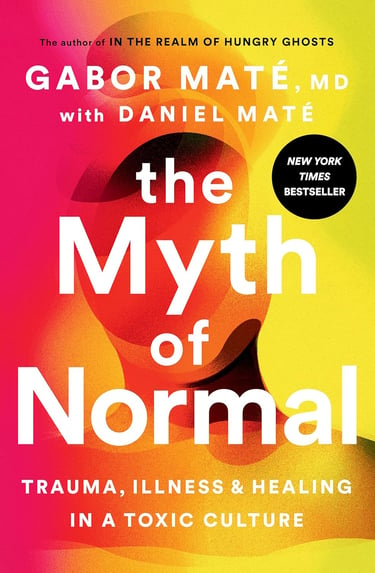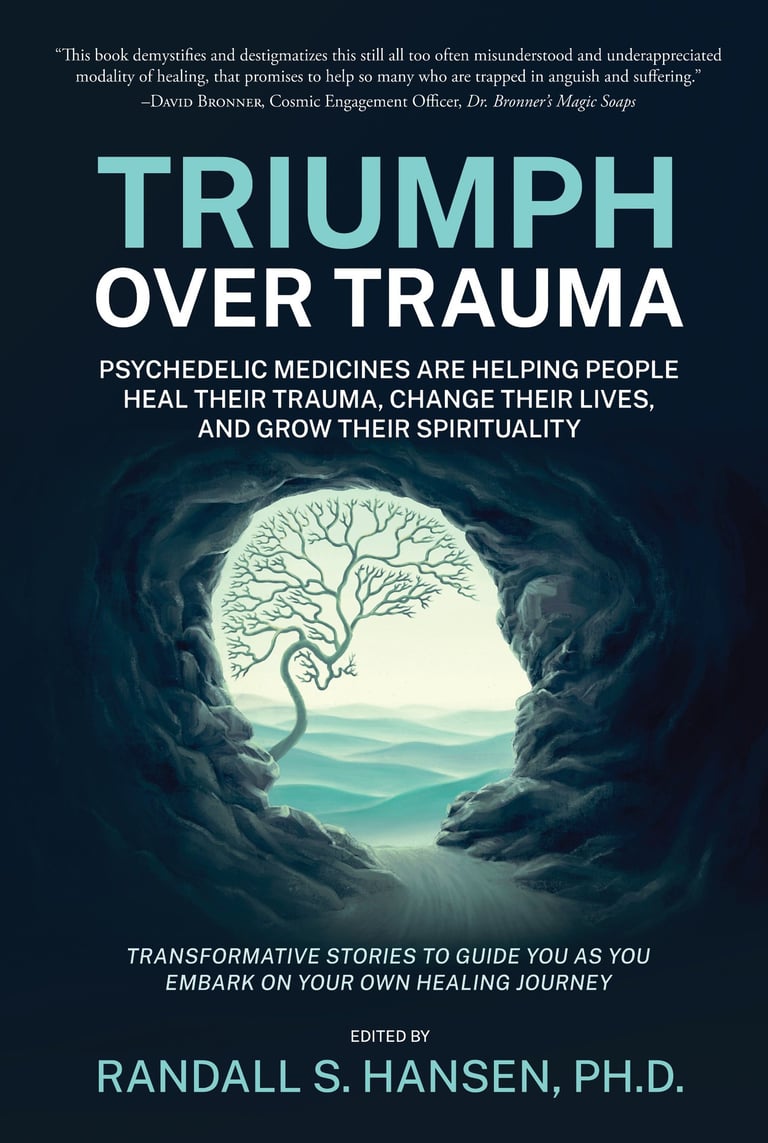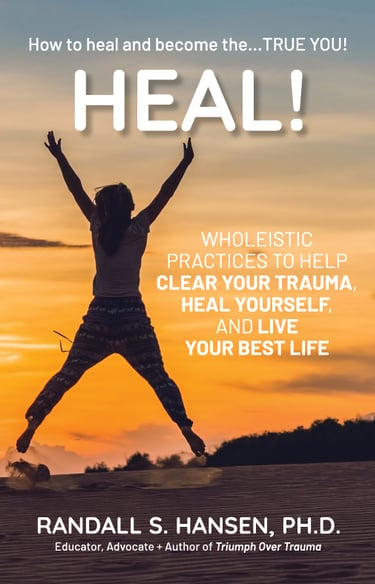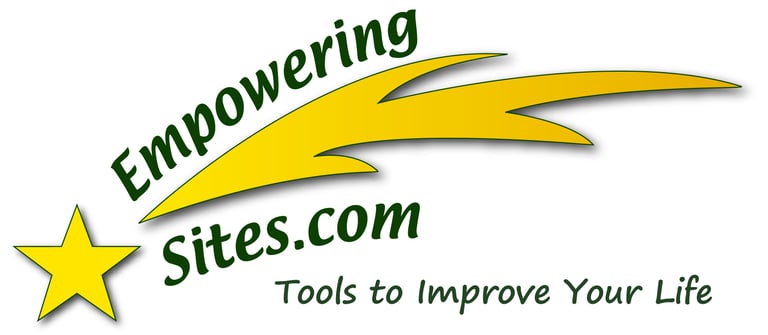Lessons We Can Learn From The Myth of Normal
The Myth of Normal: Trauma, Illness, and Healing in a Toxic Culture, by Dr. Gabor Maté, MD, with Daniel Maté. 2022. ISBN: 0593083881
There was a time in my life when I chased “being normal” because that is what I thought society and culture expected of me, but I know now that my efforts were fueled by brokenness in my past.
My main takeaway from this brilliant book is that we should all seek healing from our past traumas because the process of healing is liberating. Healing brings us on a journey to becoming whole again.
"The meaning of the word trauma, and in its Greek origin, is wound. Whether we realize it or not, it is our woundedness, or how we cope with it, that dictates much of our behavior, shapes our social habits, and informs our ways of thinking about the world,” states the author, adding: “trauma is a psychic injury, lodged in our nervous system, mind, and body, lasting long past the originating incident(s), triggerable at any moment.”
Have you ever wondered why your life has not gone the way you thought it would? Or perhaps you are sometimes surprised when some seemingly innocent words or a gesture trigger you into an unexpected reaction? Or maybe you have an addiction that you simply cannot quit, no matter how hard you try. Maté defines trauma as “an inner injury, a lasting rupture or split within the self, due to difficult or hurtful events.”
These are the types of questions you should be asking yourself as you read this fabulous book by one of my mentors and heroes, Dr. Gabor Maté. He forges ahead with a profound and illuminating theory: that past unhealed trauma wounds, combined with the toxic nature of our materialistic, isolating, patriarchal, and racist culture, are the drivers of our mental and physical health crisis.
We tend to normalize things that are often profoundly wrong and unhealthy while living in a culture built on widespread trauma, disconnection, chronic stress, and suppressed emotions. Maté states: “Things today are not normal, but we have normalized many unhealthy and unnatural habits and behaviors.”
One of the problems with our culture is that we often judge people’s addictions, anxieties, and self-sabotage as moral failings of the individual when, in reality, they are simply adaptations to the person’s suffering. In The Myth of Normal, Maté invites us to look not at the surface behaviors but more closely at the wound(s) beneath it.
When we understand the power of traumatic events to shape our lives, it changes our perspective. I love that Dr. Maté shares his own experience as an infant. In 1944, to protect her infant son from Nazi persecution during Germany’s occupation of Hungary, Maté’s mother asked a stranger to care for him for several weeks. He states, “This experience left a deep imprint that shaped my lifelong sense of anxiety and emotional disconnection.”
The greatest benefit of reading this powerful book is that you will have so much more compassion and empathy for yourself, your family, and the world at large. We are all suffering under the illusion that if we can just behave and abide by the culture’s definition of normal, we will live a good and happy life. Unfortunately, that illusion is wrong. We MUST find the time, energy, and perseverance to heal from our past trauma wounds.
What else can you glean from the book? Keep reading!
My Ten Lessons from The Myth of Normal
1. There Is No "Normal" in a Sick Society. What we consider normal in modern Western culture -- chronic stress, burnout, anxiety, disconnection – is really pathological and the opposite of what a healthy culture should be. Maté makes the case that society itself is ill, and adapting to it doesn’t make one healthy, but perpetuates the sickness. Maté states: “So much of what we call abnormality in this culture is actually normal responses to an abnormal culture.”
2. Trauma Is Widespread and Often Invisible. Trauma wounds do not just result from dramatic events that happen to us (such as war, accidents, or abuse); they also include what didn’t happen -- emotional neglect, lack of attunement, or absence of connection. These “small-t” traumas accumulate and shape our mental health. Furthermore, it is not so much about what happened to us, but how we deal with that trauma. A key point that Maté stresses: “Trauma is not what happens to you but what happens inside you.”
3. Mind and Body Are Inseparable. While we do it all the time, physical and mental health are intertwined. Maté emphasizes that emotional repression, trauma, and stress manifest physically. Autoimmune diseases, cancer, addiction, and mental illness often reflect deeper emotional or psychological wounds. Maté states: “One of the things many diseases have in common is inflammation … when people feel threatened … our bodies are programmed to turn on inflammatory genes.” We know that many of the chronic issues facing us today stem from inflammation.
4. Childhood Experiences Shape Adult Health. Early life stress -- especially in environments lacking emotional safety -- has a lifelong impact. These experiences alter the nervous system, immune function, and brain development. According to Maté, “In the absence of relief, a young person’s natural response … is to repress and disconnect … One no longer knows one’s body.”
5. Part of Our Health Crisis Stems from an Addiction to Poor Food Choices. Can I admit to experiencing a geek-out moment when Maté interviews another one of my heroes, Dr. Robert Lustig (author of the powerful book, Metabolical). Marketers focus on selling pleasure (in the name of happiness) because pleasure employs dopamine and opiates, which can then lead to addiction. He adds: “Companies have targeted the brain circuits of pleasure and reward to foster addictive behaviors.”
6. Addiction Is a Response to Trauma Wounds, Not a Moral Failing. Addiction is not about the substance or behavior itself, but about the pain and disconnection it tries to soothe. Maté defines it as “any behavior that gives relief in the short term and causes harm in the long term… Don’t ask why the addiction, ask why the pain … addiction is a normal response to trauma.”
7. Modern Medicine Often Ignores the Root Causes of Illness. The healthcare system focuses on symptoms and diagnoses but largely ignores emotional and social factors, as well as the root cause. Healing must go beyond pills and procedures. Maté asks: “How are we to understand that in our modern world, at the pinnacle of medical ingenuity and sophistication, we are seeing more and more chronic physical disease as well as afflictions, such as mental illness and addiction?” Adding: “If we could begin to see much illness … as an expected … normal consequence of abnormal … circumstances, it would have revolutionary implications.”
8. Authenticity vs. Attachment. As children, we often sacrifice authenticity to maintain attachment to caregivers. This trade-off, while adaptive in childhood, can lead to “people-pleasing” and downplaying your true self, resulting in chronic stress and disease in adulthood. Maté states: “In toxic cultures, you have to sacrifice your authenticity in order to get your attachment needs met.”
9. Compassion and Community Are Essential for Healing. Healing requires self-compassion, attunement, and supportive relationships. Judgment and shame prolong suffering, while kindness and understanding promote recovery. According to Maté, “What people need is community, compassion, contact, and safety. That’s what allows people to work through their traumas.”
10. Healing is Possible, But it Needs to Be Defined as Movement Toward Wholeness. Too often, when we think of healing or a healing journey, we are focusing on a direction or a destination, but in reality, healing is simply a commitment to moving toward becoming whole again. Maté states: “True healing simply means opening ourselves to the truth of our lives past and present, as plainly and objectively as we can.”
Final Thoughts About The Myth of Normal
While I value Maté’s expertise as a physician and healing expert, what brings this book home are his stories from someone who has lived with the effects of trauma and has spent decades healing from the inside out. As a plant medicine and psychedelic medicine advocate, I also appreciated Maté’s discussion of the healing he has received from these substances (especially ayahuasca), as well as the stories of others who have experienced healing and transformation.
Finally, although the word authenticity has been overused in recent times, it is still a goal we should all be striving for – to live our most whole and authentic lives, free of past trauma wounds. Maté states: “Authenticity is the capacity to know what you feel, to be in touch with your body, to trust your gut, and to be able to express who you are,” adding, “Healing means reclaiming your authentic self – the part of you that was never truly lost, only hidden.”
Last word: I just need to express my joy that Dr. Maté enlisted his son Daniel to help write this book – a book that should be on everyone’s reading list.
Remember: Healing is liberating!
Find more book reviews and advice for living a happy, healthy, and healing life here.
Dr. Randall Hansen is an evangelist, educator, and thought-leader... helping the world heal from past trauma and the poor food system. He is founder and CEO of EmpoweringSites.com, a network of empowering and transformative Websites, including EmpoweringAdvice.com.
He is the author of the groundbreaking Triumph Over Trauma: Psychedelic Medicines are Helping People Heal Their Trauma, Change Their Lives, and Grow Their Spirituality and the well-received HEAL! Wholeistic Practices to Help Clear Your Trauma, Heal Yourself, and Live Your Best Life.
The third book in the Wholeistic Healing Trilogy is the game-changing The HEALing Revolution Diet: A Science-based Approach to Heal Your Gut, Reverse Chronic Illnesses, Lose Weight, Clear Your Mind, and Increase Longevity.
Dr. Hansen's focus and advocacy center around true health and healing journeys that results in being able to live an authentic life filled with peace, joy, love. Learn more by visiting his personal Website, RandallSHansen.com. You can also check out Dr. Randall Hansen on LinkedIn.








